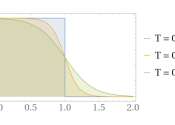Cold sintering may rescue plastic, ceramics, battery components from landfills
Recycling does not necessarily prevent an item from eventually ending up in a landfill, according to Enrique Gomez, interim associate dean for equity and inclusion and professor of chemical engineering in the Penn State College ...









